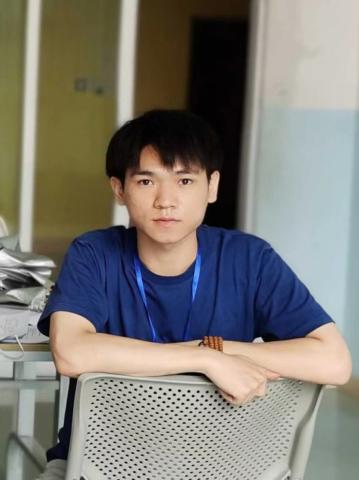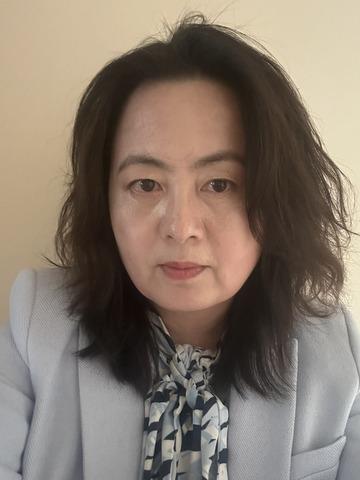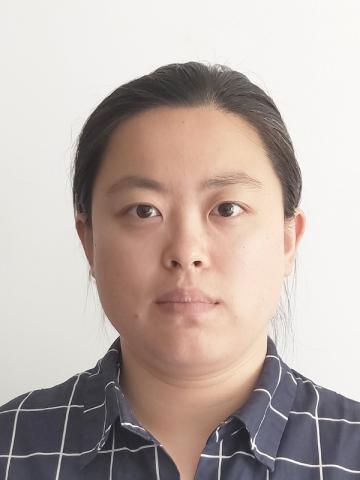
IAMCR is pleased to announce the winners of the 2024 Climate Change Communication Awards.
This year’s awards go to:
Aocheng Zhou (Communication University of China) Yingyuan Li, Ketong Cheng, Yuxi He, and Zepei Wang for their paper Independence and Pan-politicization: the Shift in Climate Emergency Discourse when COVID-19 Emergency Comes to an End. A methodologically innovative exploration using the Python crawler and data visualisation to track the shift from ‘change’ to ‘emergency’ in discourse around climate. The paper was submitted to the Environment, Science and Risk Communication Working Group.
Miao Chu, (Xi’an Jiatong University China) Connie Yuan, (Cornell University USA) Daniel Tong, and Siqi Ma (George Mason University USA) for their paper How do Chinatown Residents View Air Quality Issues? Pluralistic Ignorance - Perception of Air Quality Issues by an Asian Minority Group. A multi method investigation with a strong ethnographic element whose central finding – that residents’ concern with air quality “was put on the back burner’ and homelessness and other issues seen to be more immediately pressing raises important issues for efforts to position climate change at the centre of political agendas.
Watch this video with Graham Murdock, Chair of the 2024 Climate Change Communication Award Selection Committee, announcing the award winners, and short statements by the accomplished individuals themselves.
Both papers were accepted for presentation by the Environment, Science and Risk Communication Working Group.
The award will be formally presented at a special session to be held on 3 July during the main IAMCR 2024 conference in Christchurch.
Announcing its decision, the Climate Change Communication Award Selection Committee said:
This year’s submissions confirmed once again the strength and diversity of members’ research and theorising in addressing urgent challenges of climate change communication. Reflecting IAMCR’s genuinely global reach the majority came from scholars outside the established academic centres in the Global North, with a particularly strong representation from Chinese researchers.
On behalf of the Climate Change Communication Award Evaluation Committee I would like to thank everyone who submitted an entry this year. Your work in confronting the climate emergency is an indispensable contribution to IAMCR’s wider commitment to understanding the role that communication is playing in shaping present thought and action and the role it needs to play in securing a sustainable and just future.
Graham Murdock
Emeritus Professor of Culture and Economy Loughborough University
Chair: 2024 Climate Change Communication Award Evaluation Panel

Aocheng Zhou is a Master's student at the State Key Laboratory of Media Convergence and Communication, Communication University of China. His research focuses on environmental communication and public opinion.

Yingyuan Li is a Master's student at the State Key Laboratory of Media Convergence and Communication, Communication University of China. Her interests include computational communication and international communication.

Ketong Cheng is a Master's student in Journalism and Communication at the State Key Laboratory of Media Convergence and Communication, Communication University of China. Her research focuses on international communication and public opinion.

Yuxi He is a Master's student in Information Communication at the State Key Laboratory of Media Convergence and Communication, Communication University of China. His interests lie in sports communication and media discourse.

Zepei Wang holds a Bachelor's degree from Sun Yat-sen University and is pursuing a Master's degree at the State Key Laboratory of Media Convergence and Communication, Communication University of China. His research focuses on cognitive and computational communication.
Abstract
Independence and Pan-politicization: the Shift in Climate Emergency Discourse when COVID-19 Emergency Comes to an End
The recent deterioration of global climate conditions and the national emergency states under the COVID-19 pandemic have led to a discourse shift in the climate field towards a "state of emergency". In May 2023, with the global COVID-19 emergency declaration coming to an end, the sustainability of this discourse and its future trajectory both remain to be discovered. This paper is based on media framing analysis theory, constructing a semantic network of two types of climate discourses, "climate change" (CC) and "climate emergency" (CE), on the Twitter (X) platform from December 2022 to November 2023, based on tag co-occurrence relationships. Through rank correlation analysis of tag rankings and QAP correlation analysis of semantic networks, this paper explores the dynamic evolution of the two discourses over this year. The results show that the CC discourse is associated with serious science and traditional politics, while the CE discourse is associated with humanities, arts, and social movements. The two semantic networks generally show a trend of changing from related to unrelated over the course of the year. With the end of the global COVID-19 emergency state, the discourse of CE has undergone a dynamic evolution from climate discussion to a pan-political movement, gradually becoming independent from the CC discourse. The findings would contribute to a better understanding of the deep connotation of climate discourse and providing insights for enhancing public awareness of the urgency of the climate crisis.
Presentation date and time: 2 July at 8:30
Room: Te Pae Dobson 4

Miao Chu is a PhD candidate in Journalism and Communication at Xi'an Jiaotong University. Her research focuses on intercultural communication and urban/regional branding.

Connie Yuan is a full professor in the Department of Communication at Cornell University, specialising in organisational and intercultural communication.

Daniel Tong is an associate professor and Director of the Satellite and Earth System Studies Institute at George Mason University, focusing on air quality and its societal effects.

Siqi Ma is a postdoctoral research fellow at George Mason University, studying emissions of trace gases and greenhouse gases related to climate change and air pollution.
Abstract
How do Chinatown Residents View Air Quality Issues? Pluralistic Ignorance - Perception of Air Quality Issues by an Asian Minority Group
Pluralistic ignorance, defined as misconceptions about others’ opinions, undermines environmental collaboration. This study, using Manhattan Chinatown as a case, explores how people in this Asian community perceive poor air quality and other racial/ethnic groups’ environmental concerns. The study uses mixed methods, including ethnographic observations, interviews, and surveys, for result corroboration. To collect needed data, we made five trips to Manhattan Chinatown from July 2022 to May 2023, totaling nearly a month of stay in the area. More than 500 participants effectively engaged in the research. The results show that although Chinatown people are concerned about poor air quality due to the negative health impact of 9/11, other more pressing social issues in Chinatown, i.e., anti-Asian hate and the construction of a mega-jail in the center of the community, have occupied people’s primary attention. While other racial groups may hold biased views of Asians’ environmental concerns, we found a reciprocal biased perception such that many Chinatown people think that only white/Caucasian and ethnic Chinese care about the environment. Both interview and survey data revealed low self-efficacy at the individual and the community levels for change, particularly after their protests against the jail construction project failed.
Presentation date and time: 3 July at 16:00
Room: Te Pae Conway 3
Climate Change Communication Award 2024 Selection Committee
- Graham Murdock, Chair (Loughborough University, UK)
- Hanna Morris (University of Toronto, Canada)
- Kerrie Foxwell-Norton (Griffith University, Australia)
- Jeremy Swartz (University of Oregon, United States)